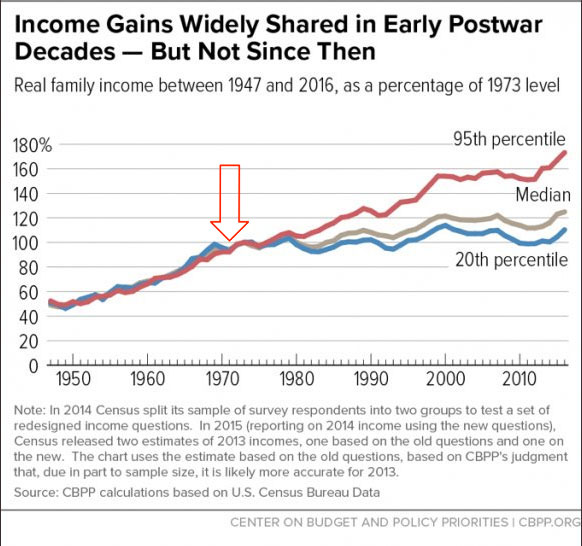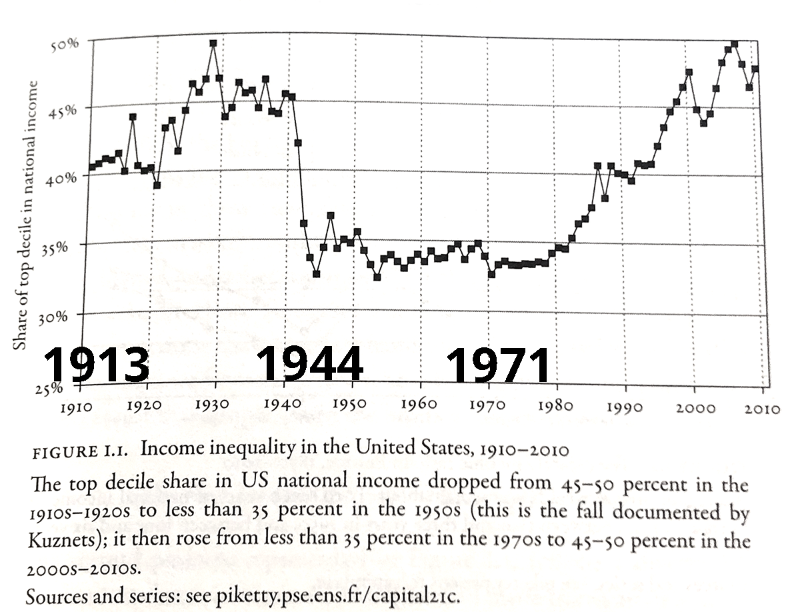noxiousdog wrote: ↑Mon May 17, 2021 10:47 am
LordMortis wrote: ↑Mon May 17, 2021 10:33 am
Octavious wrote: ↑Mon May 17, 2021 10:22 am
I'm shocked that people aren't flocking to $9 an hour jobs. Maybe just maybe this will cause companies to start paying a bit more? That would be horrible. Of course what will really happen is that all the benefits will get cut off and they will have to go back to the slave wages.

What will happen is that it will be an excuse to raise prices and inflation will happen, not actually making things better for the wage earners. Profits gotta flow to the top somehow. But for people and entities with large amounts of debt, this is a good thing, right?
I don't know the right answer. We are so tied to making money for "stake holders" that labor costs are a stain.
CNBC keeps interviewing Kevin O'leary on the subject and he makes my blood boil. He's downright livid that he has to compete with government unemployment checks to pay people sustenance level wages to work.
We aren't "tied to making money for stake holders." We have a system where private individuals invest capital when they expect they can get a return. If they don't get that return, they can opt to sell. If their expenses exceed their income they go bankrupt. We even have laws set up so that you even get special protection if you don't want to turn a profit. You participate in this system. You're an investor. You talk about Ford all the time. Their profit margin is 3%. Is that unreasonable?
Actually an interesting
paper dropped recently on the subject. It is from a more liberal think tank but they ascribe policy to a 40% or so gap between productivity and wages since the 70s and identify multiple policy levers that led to it.
They essentially argue that government policy has been driving inequality. I read about half so far but the abstract was pretty interesting reading alone. The ;tldr is that economic policy has been indeed 'tied to making money for stake holders' or more classically through rent seeking. The abstract American worker was abandoned in the process left to compete with globalization forces, employment law geared entirely in the employers favor, skill mismatches without support, etc.
My take assuming this is directionally correct is that the result has been what we've seen: persistently low wages, lower than target inflation, economic inequality indicators blinking red, etc. This reality ran smack dab into a pandemic which is making people reassess everything. In anyt case, tying it to 'unemployment checks' is too simple too. It's complex but we're seeing something happening that is frankly unusual and will take time to process.
Edit:
Pulled out the money section.
As we will discuss, six factors can collectively explain most of the growth of wage inequality and the erosion of labor’s share that resulted in wage suppression over the last four decades (specifically 1979–2017):
1. Austerity macroeconomics, including facilitating unemployment higher than it needed to be to keep inflation in check, and responding to recessions with insufficient force;
2. Corporate-driven globalization, resulting from policy choices, largely at the behest of multinational corporations, that undercut wages and job security of non-college-educated workers while protecting profits and the pay of business managers and professionals;
3. Purposely eroded collective bargaining, resulting from judicial decisions, and policy choices that invited ever more aggressive anti-union business practices;
4. Weaker labor standards, including a declining minimum wage, eroded overtime protections, nonenforcement against instances of “wage theft,” or discrimination based on gender, race, and/or ethnicity;
5. New employer-imposed contract terms, such as agreements not to compete after leaving employment and to submit to forced private and individualized arbitration of grievances; and
6. Shifts in corporate structures, resulting from fissuring (or domestic outsourcing), industry deregulation, privatization, buyer dominance affecting entire supply chains, and increases in the concentration of employers.





